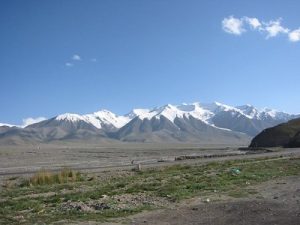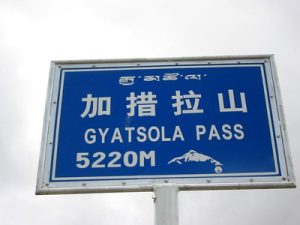Most of you probably know I lived in Nicaragua for a time—about six months—overseeing renovations to my father’s house, where he lives even now.
Me? I’m no fan of the country, nor its politics, nor do I romanticize the pervasive, grinding subsistence poverty in the countryside and sad, soul destroying poverty in the cities. About two dozen rapacious families guarantee Nicaragua’s place as second poorest nation in this hemisphere.
 Nicaragua is not without its charms. I have a deep respect for the people of one of three nations in this hemisphere who, one, told the United States to fuck off and two, have largely succeed in keeping the US at arms length. The Spanish spoken in Nicaragua is, in two words, incomprehensibly unique. They distinguish between beans and rice and rice and beans. Seriously they make up two distinct dishes, although I can’t tell the difference. They eat some crazy vegetables—they have ten different varieties of squash, which I detest. But, they know how to cook meat in ways as diverse as barbecue, stew, seared and broiled. Chicken, pork, beef (no lamb or goats) and of course gallino de palo (tree-chickens AKA iguanas) make up the usual tasty fare.
Nicaragua is not without its charms. I have a deep respect for the people of one of three nations in this hemisphere who, one, told the United States to fuck off and two, have largely succeed in keeping the US at arms length. The Spanish spoken in Nicaragua is, in two words, incomprehensibly unique. They distinguish between beans and rice and rice and beans. Seriously they make up two distinct dishes, although I can’t tell the difference. They eat some crazy vegetables—they have ten different varieties of squash, which I detest. But, they know how to cook meat in ways as diverse as barbecue, stew, seared and broiled. Chicken, pork, beef (no lamb or goats) and of course gallino de palo (tree-chickens AKA iguanas) make up the usual tasty fare.
Nicaragua’s best aspect is its untapped collection of perfectly sized waves, best on the Central American Pacific Coast by my estimation; waves for beginners and pros alike. There is only one monster, which I’ll get to in a moment. Sadly (or not) the changes in the political situation between 2015-2025 have scared off most surfers and they’ve migrated to Costa Rica, which has some sweet waves and parts of Guatemala that remain damned near empty. But, I digress.
One late morning, completely disgusted after persistently being thrashed by the waves breaking on the beach at Popoyo—the barrels collapsed so rapidly I was unable to get all but three drops (and no, I was not surfing the A-frame point break Popoyo is famous for, as a beginner I had no death wish I’ve seen too many boards munched on that wave) so I gave up, hopped in the car and began the two hour drive back to Granada.
After 30 minutes drive on a dirt road I turned north on Nicaragua’s stretch of the Pan-American Highway. No fan of Latin music (the radio was off) my mind wandered along the amazing scenery. Volcanoes rose. Small villages disappeared in a sneeze. The olive shades of Lake of Nicaragua were seemingly endless. Isla Ometepe, an island of twin volcanoes, shot up and passed by just as quickly. A few small attempts at agriculture grew to my left and right. All disappeared in blur or blink.
 But time passes strange in a foreign land and stranger still on the road. I pulled over next to an anemic sugar cane field, cut a small stalk, sliced it into three pieces and returned to the car. As I shaved the outer layer off and bit into the heart of the cane, two thoughts, as if in quantum superposition, occupied my mind.
But time passes strange in a foreign land and stranger still on the road. I pulled over next to an anemic sugar cane field, cut a small stalk, sliced it into three pieces and returned to the car. As I shaved the outer layer off and bit into the heart of the cane, two thoughts, as if in quantum superposition, occupied my mind.
“Damn, this is sweet!” Mundane, indeed, but the other was the “a-ha” moment my brain had been silently working out for the last hour.
“Holy shit,” I mouthed silently, “Nicaragua is full of a whole lot of nothing.” Sure, up north in the mountains they grow some mid-grade coffee. Tobacco growth is accelerating also. Why in the current anti-tobacco global climate I don’t know? But it is. Cassava is a major crop, it’s like a potato but tastes like a brown paper bag on a good day. True hunger makes much palatable, I suppose. Plantains and bananas are grown of course. And there are a handful of other root-like plants and squash-like plants that grow there also. The country imports most of its rice, but grows a lot of beans/legumes.
Later I shared this realization with my father who was as surprised as I was by the realization. He agreed. Of course, Dad and I think alike in many ways—father and son, best friends, traveled in 50 plus nations together—so we quickly developed a shorthand for my “whole lot of nothing” observation, calling it ‘low hanging fruit’ syndrome, LHF for short.
LHF came to signify the lack of economic development and general lack of entrepreneurial spirit in Central America. Now, not every nation on the planet is going to be entrepreneurial. Laos is an excellent example—and please this is not a criticism of Laos and Laotians. When I was there they just seemed to have other priorities, like Buddhism. But Nicaraguan’s? The Pinoleros—the preferred demonym of the Nicaraguans and it has not one whit of the pejorative to it—are natural, gifted hustlers, practically pure bred entrepreneurs who are imbued with a naturally prepossessing work ethic and quite a bit of chutzpah. In short: they know when to engage, when to toss out a bit of bullshit. They can sell with the best Wall Street sharks—I’d know—and they know how to make and keep money.
“Why then,” you ask, “is Nicaragua, the largest nation in Central America, making no economic progress and going backwards instead?”
Great question!
 There are two reasons for Nicaragua’s penury. First, 90% of Nicaraguans live west of the Pacific slope or in the interior highlands. This population occupies only 38% of Nicaragua’s landmass. The remaining 10% of Nicaraguans live on a narrow strip of the Caribbean Coast or the Corn Islands. Almost two thirds of the country—62%— is uninhabited. Not that I am advocating the rapine of all the pristine tropical forest of the Caribbean lowlands, but far to little of it is being developed and far too many people occupy a very crowded Pacific slope. What is the cause of this underdevelopment? The Pacific slope is littered with LHF and to travel through the Caribbean Lowlands to the coast takes two days on very, very bad roads. Until there is significant infrastructure development that opens the lowlands to development Nicaragua will remain mired in LHF poverty.
There are two reasons for Nicaragua’s penury. First, 90% of Nicaraguans live west of the Pacific slope or in the interior highlands. This population occupies only 38% of Nicaragua’s landmass. The remaining 10% of Nicaraguans live on a narrow strip of the Caribbean Coast or the Corn Islands. Almost two thirds of the country—62%— is uninhabited. Not that I am advocating the rapine of all the pristine tropical forest of the Caribbean lowlands, but far to little of it is being developed and far too many people occupy a very crowded Pacific slope. What is the cause of this underdevelopment? The Pacific slope is littered with LHF and to travel through the Caribbean Lowlands to the coast takes two days on very, very bad roads. Until there is significant infrastructure development that opens the lowlands to development Nicaragua will remain mired in LHF poverty.
Hurdles aside, development politics in Central and South Americ are undergoing a seismic shift. That’s good news for the Pinoleros, money is pouring in. It’s bad news for the USA because the cash is coming from China. As is China’s policy, the money comes with no strings attached, unlike American money with its persistent moral litany of “Do this, don’t do that!”
“Do as we say, not as we do!”
This is not what the Nicaraguans hear from China. The only real demand the Chinese make is on the bigger infrastructure projects. Chinese builders design it, and Chinese build it, hiring few, if any local workers—usually because they don’t have the skills. The Chinese also pay for it, mostly, and don’t lecture. The US can’t compete—not after 150 years of terrible behavior in Latin America. The conclusion, the only conclusion, one can come to in Nicaragua and many other Latin American nations is that the USA is losing influence and power to China. Big time. And fast.
We have a sustained current account deficit with Nicaragua of $1.9 billion. That means we consistently import more from them than we export. China is the reverse. Much of that is due to FDI (foreign direct investment). This investment doesn’t benefit China solely. At present China is building a huge new airport that’s primary goal is to displace the Avianca Hub in San Salvador as the go to airport in Central America. China funded it to the tune of $499 million. It will possess two 4,000 meter runways, long enough and large enough to accommodate Airbus A380 and other wide body jets. The airport is intended to act as a non-stop hub to Europe, Asia and all of South America. Ground has been broken and the expected operational date is sometime in 2028.
The Chinese are also going to help build out the road network to the Caribbean Coast. This will create many new opportunities. Ortega, for all his faults, brought about some serious land reform at the beginning of his rule, so the Caribbean lowlands are now open to just about anyone who has the gumption to settle them.
The decline in American power is as palpable now as it was during the COVID epidemic. The moment COVID was politicized I could literally sense our decline, it was so obvious. Now, under Trump II, the decline is accelerating. Even in our own backyard.
The jury is still out on whether it is rapidly relative decline or real decline. I think it is the latter, only time will tell. Just not enough time for my taste.
On that note: please, please, support this site, subscribe or donate. We’re about $1,800 from our goal of $12,500.


